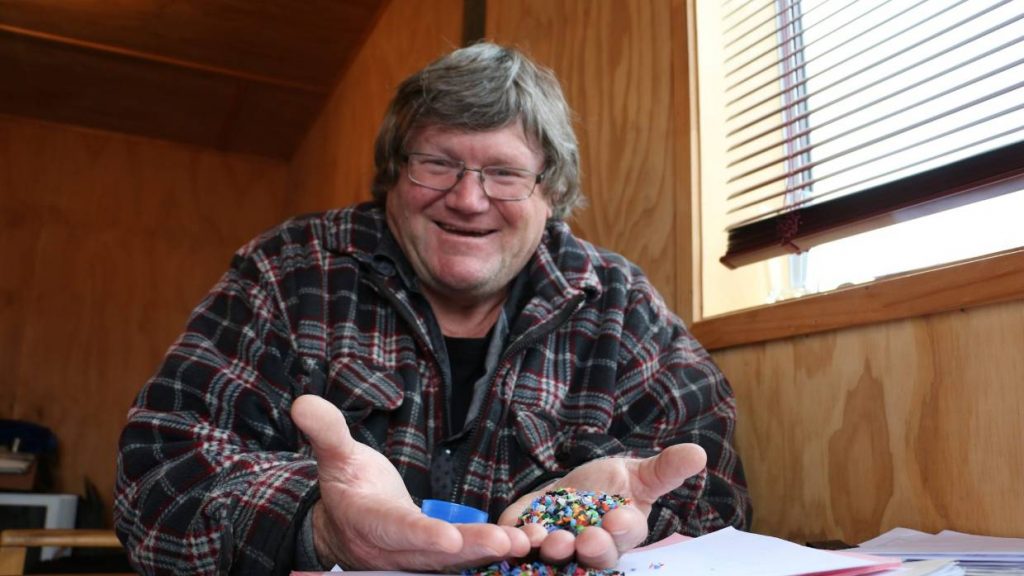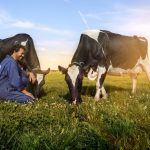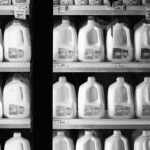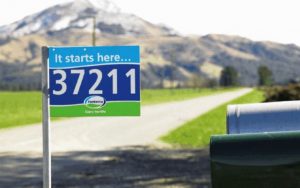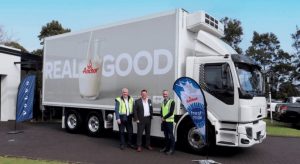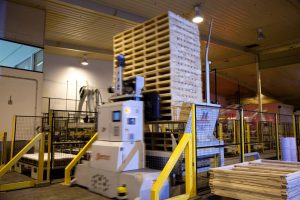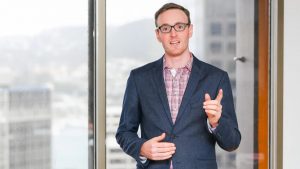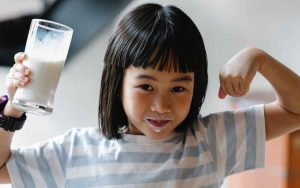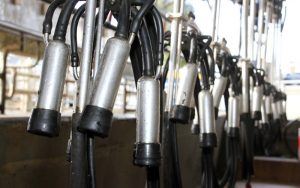
Raymond Buckland of Egmont Refuse and Recycling in Hāwera, has started a special collection for the lids, which often end up in landfill because they are too small to be baled with other plastics.
He’s already given small bins for collecting the tops to several schools around South Taranaki.
“The secret is going into schools,” he said. “The kids will boss their parents around. They’ll be flying in once the kids take charge.”
The tops will be shredded into plastic granules at his Hāwera site then sold to a firm in New Zealand that makes them into pipes and rubbish bags, he said.
“I use the bags all the time. I end up buying the stuff back off him.”
The bottle-top collection bins are also being offered to businesses that sell milk, and one had already been placed in the staffroom at the South Taranaki District Council.
“This will go out to other councils as well,” Buckland said. “This is going right around Taranaki.
“The whole idea is you put this on your bench, wash the tops and pop them in.”
Any bottle tops featurin a 2 inside a triangle symbol, indicating they are made of high-density polyethylene (HDPE), can go into the bins.
“I find this exciting because I’m taking something out of the dump all together,” he said.
“It doesn’t seem very much but when you think about how many bottles of milk they sell, it’s a massive number.”
Buckland, who had been operating the recycling business for 28 years, also collects cans, cardboard, glass and plastic as well as several items not accepted by the council’s recycling scheme, including soft plastic like bread bags, and polystyrene.
